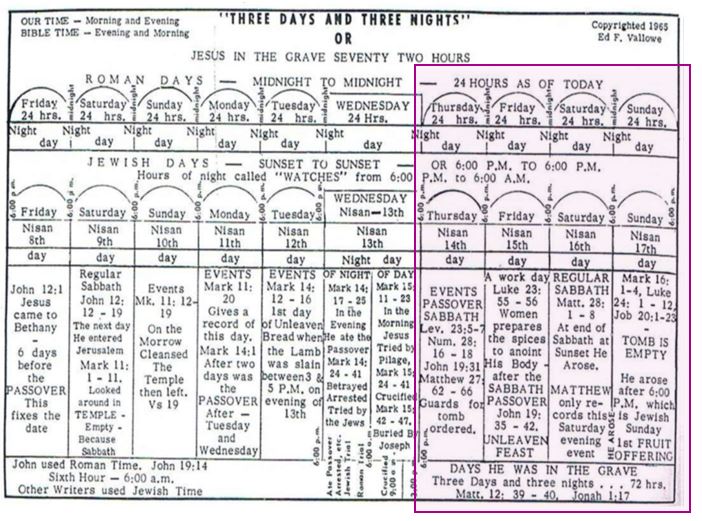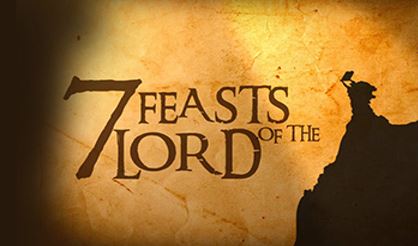God’s Appointed Pathway
“The Feast of Firstfruits”
Leviticus 23:1-2, 1 Corinthians 15:20-25
Wayne J. Edwards, Pastor
The method of our sermons is to explain the origin and intent of each of the Seven Feasts of the Lord, but the message is to show how Jesus has fulfilled or will fulfill God’s divine purpose for each of the feasts.
- The Hebrew word translated in our English Bibles as “feasts” is “Moed,” which means “The Creator’s Appointed Times.”
- Our hope is that you see how God planned and established these times, and the sequence of these seven feasts to reveal His divine plan for our redemption, as each feast gives us a descriptive picture of the Person and work of Jesus Christ as our Savior and Lord.
- God commanded the first four feasts to be observed during the spring, including Passover, Unleavened Bread, Firstfruits, and Pentecost, and the prophetic picture behind these four feasts was fulfilled in the first coming of Jesus Christ.
- God commanded the final three feasts to be observed during the fall, including The Feast of Trumpets (Rosh HaShanah), the Day of Atonement, and the Feast of Tabernacles, and the prophetic pictures behind these three feasts will be fulfilled when Jesus returns as the King of Kings and Lord of Lords.
While He designed the earth as a habitat for humanity, the Bible says God walked with Adam and Eve in the cool of the day.
- However, because of their rebellion, God could no longer dwell with them. So, from Genesis 3:15 to Malachi, God revealed His plan of redemption for all men through His relationship with the Israelites.
- While God birthed the Israelites through Abraham, delivered them from bondage in Egypt through Moses, and revealed His power through the plagues and the parting of the Red Sea, He still could not dwell with His people.
- The Book of Leviticus describes the Israelites camped at the base of Mt. Sinai, waiting for instructions before they began their journey to the Promised Land.
1. God’s Call to A Holy Life – Lev. 20:26 “And you shall be holy, for I the LORD am holy and have separated you from the peoples that you should be Mine.”
- In this context, “holiness” means to be “set apart.”
- As God is separate from His creation, and yet He desires to have a personal relationship with mankind, so He has called His people to remain separate from the world, and yet be used of Him to make a difference in the world.
- Having become accustomed to the pagan lifestyle of Egypt, the Israelites had forgotten about the land God had promised them and the God who had made such a promise.
- However, having redeemed the Israelites from Egypt, He now wanted them to represent Him on the earth.
- Having designed a place for God to dwell among His people, He wanted them to do what they needed to do to show their respect for God.
- The Book of Leviticus is about:
- God’s Holiness – and the holiness He expects from those who are called His people.
- Man’s sinfulness – and the seriousness of sin, in that it must be dealt with before they can have fellowship.
- How God desires to be worshipped – in no less than ten passages, true worship is defined as a “pleasing aroma unto the Lord,” which means we must come before the Lord with pure hearts and clean hands, having confessed our sins and reconciled all relationships.
2. God’s Call to a Grateful life – Lev. 23:9-14 – “The Lord said to Moses, speak to the Israelites and say to them, when you enter the land I am going to give you and reap its harvest, bring the priest a sheaf of the first grain you harvest.”
- God provided the “mana” for them while they were in the wilderness, for they had no other source of food.
- But when they began to grow their crops in the Promised Land, they were to observe the Feast of First Fruits by bringing the first sheaf of grain to the priest, who would wave it before God to thank Him for the harvest that was yet to come.
- This was to be done at sunrise on the day following a unique Sabbath after Passover and the Feast of Unleavened Bread.
- This command parallel’s the exhortation of Malachi 3:10-12 for God’s people to return unto Him a tithe of that which He has entrusted to them.
3. God’s Call to Eternal Life – 1 Corinthians 15:20-23 – “But now Christ is risen from the dead, and has become the firstfruits of those who have fallen asleep.”
- In John 12:24, Jesus described Himself as the grain of wheat that fell to the ground and died, that it might spring up to new life and bring forth much fruit.
- The hour of our Lord’s glorification was His crucifixion and His resurrection, for when Jesus rose from the dead on the third day after Passover, He not only fulfilled the Feast of Firstfruits, but He also became the Lord of the Harvest of souls, yet to be saved.
- When God raised Jesus from the dead, He was the first to conquer the effects of death, i.e., to pass from the natural to the supernatural; from the temporal to the eternal, and that is what Jesus promises to those who will receive Him as their Savior.
- Jesus rose from the dead just as He said He would, and from His throne in heaven, He says to a watching world: “Because I live, you all shall live.”
“Of His own will He brought us forth by the word of truth,
that we might be a kind of firstfruits of His creatures.”
James 1:18








